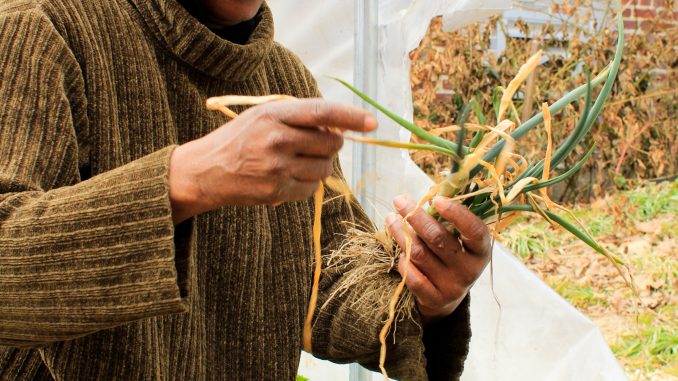

In a recent public health study conducted by Temple, researchers studied the effects of being “nice” to the heart.
In 2012, Temple teamed up with local nonprofit Earth’s Keepers, a community organization located in West Philadelphia that strives to unite and improve the health of the community through urban farming and other community outreach programs.
The pair teamed up to conduct an academic research study about the health of urban residents in Nicetown, a neighborhood in North Philadelphia.
On Feb. 26, Dr. Freda Patterson, assistant professor in the Public Health Department at Temple and the lead author of the project, received word that her department’s study was accepted for publication in Health Education Journal. The academic research has been undergoing the peer review process since this past summer.
Patterson organized the project alongside Alia Walker, an administrator for Earth’s Keepers and an advocate for positive change in her community.
Patterson and Earth’s Keepers met at one of Temple’s Community-Driven Research Days, an event that works to pair Temple researchers with local community members and organizations.
“As public health researchers, we do our best work when we understand the needs and priorities of community organizations,” Patterson said.
Both the research team and local residents involved in the study worked together to formulate a study that the participants enjoyed, Patterson said. The residents decided to meet twice a week over a four-week period to engage in line dancing classes.
Patterson said “participants loved it.”
Additionally, organizers at Earth’s Keepers led seminars during the biweekly meetings to better inform the study’s participants about healthy eating and healthy life habits.
By conducting line dancing classes and health information seminars, researchers were able to monitor health changes in Nicetown residents who participated in the study. They titled the project, which took place in Nicetown, “Nice to Your Heart.”
The Temple research team strived to collaborate very closely with Walker and the residents of Nicetown to create a research study that prioritized both the interest of the Nicetown residents and the academic aims of Temple. This is a courtesy and initiative both Patterson and Walker said they deem an important principle in conducting academic research within local communities.
Patterson, an expert in public health, and Walker, a community organizer in West Philadelphia for more than 40 years, worked side-by-side.
Patterson described Walker as “passionate” and said community organizers like Walker make Patterson’s work in public health worthwhile.
“My partner was … excellent. The relationship was … excellent,” Walker said of Patterson.
Walker said she believes community collaboration at many different levels is vital, and respect for any local community and its residents is also crucial. Earth’s Keepers is collaborating again this summer with a local artist to educate children about healthy eating and growing fresh produce.
Collaborating among community organizations and members – and in this case with a local artist – is imperative in uniting the Philadelphia community at large, Walker said.
As a leader for Earth’s Keeper’s, Walker organizes an urban farm that strives to provide fresh and healthy produce for local community members in West Philadelphia, especially in a community where such produce may not be readily available.
Walker has been a community organizer within West Philadelphia for nearly four decades, and through her interactions with community members, she has recognized an increasing trend in health problems, some of which she attributes to the eating styles and habits of her fellow residents.
Walker said there is a lack of fresh and healthy produce and food available for residents in underserved communities, and, subsequently, many community members have developed diets that are highly contingent on prepackaged food.
“A lot of places where [community members] buy their food only carry packaged food,” Walker said. “And if there are fresh foods, they’ve been there so long you don’t want to purchase them.”
Finnian Saylor can be reached at finnian.saylor@temple.edu.



Be the first to comment